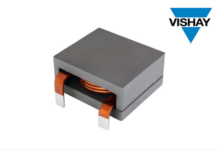
Electric vehicles (EVs) are becoming increasingly popular as people seek to reduce their carbon footprint and use clean, sustainable transportation options. However, EVs are still a relatively new technology that has many challenges to overcome. One of the most important challenges is ensuring that electric vehicles are safe, reliable, and efficient. This is where electric car testing equipment comes into play – by using specialized equipment to test electric cars, we can ensure that they meet the highest performance and safety standards. In this article, we’ take a closer look at some of the main types of EV testing equipment.
Type of Electric Vehicle (EV) Testing Equipment
Electric Vehicle Testing on Chassis dynamometer:
A chassis dynamometer is a type of test equipment used to evaluate the performance of electric vehicles (EVs) under simulated driving conditions. The dyno measures the vehicle’s performance while the wheels are spinning on the machine. This allows engineers to evaluate the electric vehicle’s acceleration, top speed, and other performance metrics.
Road dynamometers are especially useful for testing electric vehicles because they can simulate a wide range of driving conditions, including different speeds, grades, and road surfaces. By testing the electric car on a dyno, engineers can evaluate its performance in a controlled environment and identify any problems with the powertrain, battery or other components.
An important aspect of chassis dynamometer testing is the ability to measure the ‘energy consumption” of the vehicle. This information can be used to evaluate the vehicle’s efficiency and range under various driving conditions and to optimize the powertrain for maximum performance and battery life.
Chassis dynamometers are also used to evaluate the e-vehicle’s regenerative braking system. The regenerative braking system is an important feature of electric vehicles because it helps capture energy during braking and use it to recharge the battery. By testing the regenerative braking system on a test bench, engineers can evaluate its effectiveness and identify any problems with the system.
Overall, chassis dynamometers are an essential tool for evaluating electric vehicle performance. By using specialized testing equipment such as a chassis dynamometer, manufacturers can identify and fix problems with their electric vehicles before they go into production, ensuring that they meet the required performance and safety standards.
Battery Testing Equipment:
Battery test equipment is used to evaluate the performance and safety of electric vehicle (EV) batteries. EV batteries are a critical component of a vehicle’s powertrain, and it’ is important to ensure that they operate efficiently and safely.
One important type of battery testing equipment is the battery analyzer. This device allows you to measure the battery’s capacity, voltage, safety test and other performance metrics. Battery analyzers can identify any cells that are not performing as well as the others, ensuring that the battery is operating at maximum efficiency.
Another important type of battery test equipment is the battery simulator. Battery simulators are used to test the battery management system (BMS) of an electric vehicle. The BMS is responsible for monitoring the battery’s state of charge, temperature, and other parameters, and is essential for battery’ safety and longevity. Battery simulators can simulate various operating conditions to test the ability of the BMS’ to respond appropriately.
Test equipment for electric car batteries includes thermal chambers, which test the battery’s ability to handle extreme temperatures. Batteries can generate heat during operation and be damaged if they get too hot. Heat chambers can simulate various temperature conditions to ensure that the battery can operate safely in a variety of environments.
Other types of battery testing equipment include battery impact testers, which simulate the effects of an impact on the battery, and battery cycle testers, which evaluate the battery’s ability to maintain its capacity over multiple charge and discharge cycles.
Overall, battery test equipment is essential to ensure that electric vehicle batteries are safe, reliable and efficient. By using specialized test equipment, manufacturers can identify and correct any battery’ performance or safety issues before the vehicle goes into production, ensuring that electric vehicles meet the required performance and safety standards.
EV Motor Testing Equipment:
Motor testing is an important aspect of electric vehicle (EV) testing equipment because the motor is the component that converts electrical energy into mechanical energy to power the vehicle. For an electric vehicle to function properly and safely, its motor must operate efficiently and reliably.
There are several types of motor test equipment commonly used to evaluate electric motor performance. One of the most important is the dynamometer test. A dynamometer is a machine that measures torque and speed and can be used to test the performance of an electric motor under a variety of conditions.
Another important type of motor test equipment is thermal testing. Electric motors generate heat during operation, and if they get too hot, they can be damaged or even catch fire. Thermal test equipment is used to evaluate the motor’s ability to dissipate heat and maintain safe operating temperatures.
Other types of engine test equipment include vibration tests, noise tests, and efficiency tests. Vibration testing is used to assess the engine’s ability to withstand vibration and shock, while noise testing is used to assess the engine’s noise performance. Efficiency testing is used to assess how effectively the engine converts electrical energy into mechanical energy and can help identify ways to improve engine performance.
Overall, motor testing is an essential part of electric vehicle testing equipment because it helps ensure that electric vehicles are safe, reliable, and efficient. By using specialized motor test equipment, manufacturers can identify and fix any issues with their motors before they become a problem, and they can ensure that their electric vehicles meet the required performance and safety standards.
EV Powertrain Testing Equipment:
EV powertrain testers are used to evaluate the performance of the powertrain in electric vehicles (EVs). The drivetrain is the system that transfers power from the battery to the wheels and consists of several components, including the motor, transmission, and inverter.
One important type of test equipment for electric vehicle powertrains is the dynamometer. A dynamometer is a machine that measures torque and speed and can be used to test the performance of the motor and transmission under various conditions. Dynamometer testing can help identify problems with powertrain’ performance, such as insufficient torque or poor acceleration.
Another important piece of test equipment for electric vehicle powertrains is the inverter tester. The inverter is responsible for converting DC power from the battery into AC power to drive the motor, and it’ is important that it functions properly for the powertrain to operate efficiently. Inverter testers are used to test the inverter’s ability to deliver the required power to the motor, as well as its efficiency and reliability.
Thermal testers are also commonly used in EV powertrain testing. Electric motors generate heat during operation, and it’ is important that they remain within a safe operating temperature range to avoid damage or failure. Thermal test equipment can be used to evaluate the powertrain’s ability to dissipate heat and maintain safe temperatures.
Overall, powertrain test equipment is important to ensure that electric vehicles are safe, reliable, and efficient. By using specialized test equipment, manufacturers can identify and correct powertrain’ performance problems before the vehicle goes into production and ensure that their electric vehicles meet required performance and safety standards.
EV Charging Testing Equipment:
EV chargers are used to evaluate the performance and safety of electric vehicle (EV) charging stations. These test devices are important to ensure that EV charging stations are reliable, efficient, and safe for public use.
One important type of test equipment for electric vehicle charging is the ground resistance tester. This device measures the resistance between the charging station’s ground terminal and the actual ground. By checking the ground resistance, the tester can ensure that the charger is properly grounded and reduce the risk of electric shock or other electrical hazards.
Another important type of test equipment for electric vehicle charging is the insulation tester. This device tests the insulation resistance of the charging station’s internal wiring and ensures that there are no shorts or other problems that could pose a safety hazard.
Electric vehicle charging test equipment also includes power quality analyzers, which can check the quality of the charging stations power supply. These devices can detect problems such as voltage fluctuations or harmonic distortion that could affect the ‘performance and safety of the charging station.
Other types of electric vehicle charging test equipment include load testers, which can simulate the load on an electric vehicle during charging, and thermal imaging cameras, which can identify hot spots or overheated components in the charging station.
Overall, electric vehicle charging test equipment is important for ensuring that electric vehicle charging stations are safe, reliable and efficient. By using specialized test equipment, manufacturers and operators can identify and correct problems with charging stations before they become a safety hazard or negatively impact usability.
Conclusion: –
As electric vehicles become more popular, it’ is essential that they meet the highest standards of safety, reliability, and efficiency. This can only be achieved through the use of specialized test equipment for electric vehicles. Battery testers, EV cargo testers, and EV powertrain testers are just a few examples of the types of equipment manufacturers use to test their vehicles. By investing in electric vehicle test equipment, manufacturers can ensure that their electric vehicles meet the required standards and provide a high-quality driving experience for their customers.



















